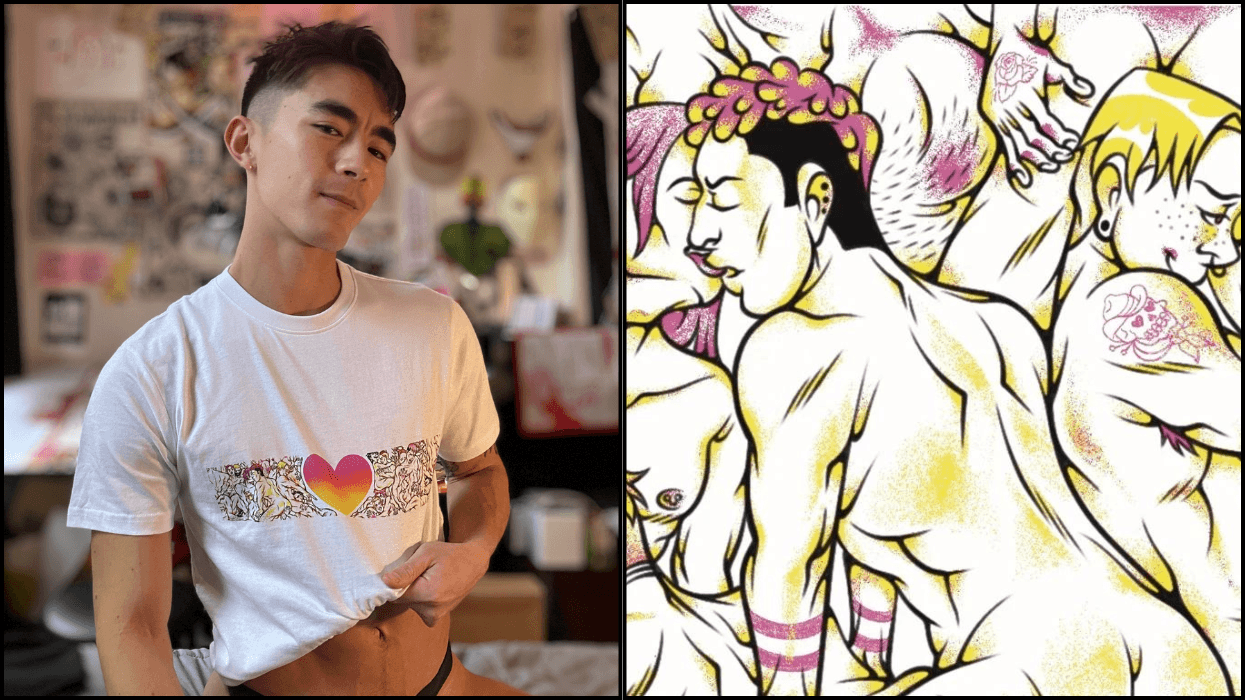
As corporate diversity trainer on gay and transgender workplace issues, Brian McNaught makes a case for keeping gender identity in ENDA
October 17 2007 12:00 AM EST
November 17 2015 5:28 AM EST
By continuing to use our site, you agree to our Private Policy and Terms of Use.

As corporate diversity trainer on gay and transgender workplace issues, Brian McNaught makes a case for keeping gender identity in ENDA
Yesterday, I spent two hours with the executive committee of a global bank, guiding their discussion on gay and transgender workplace issues. This bank uses the acronym GLBT in their literature, in employee surveys, and in all correspondence between management and their employee resource group. They want talented GLBT people to come work for them. The problem is, the company has no prohibition on discrimination against people in the T category, and it became increasingly clear that no one in the room understood the meaning or implications of the T. T stands for transgender. Transgender is an umbrella term that takes in those who identify as the gender opposite their biological sex, those who have surgically changed their gender or plan to do so, those whose sex was not clearly distinguished by their genitalia at birth, and those whose gender expression is inconsistent with cultural expectations, such as cross-dressers.
Currently, there is a heated debate in Congress and in the gay, lesbian, bisexual, and transgender population over including the T in legislation that would prohibit workplace discrimination based on sexual orientation. The United States is well behind most Western countries in prohibiting such discrimination. If the legislation includes gender identity and gender expression, the country will be in the forefront.
Rep. Barney Frank, who is in the eye of the storm, is right in eliminating transgender protections from the Employment Non-Discrimination Act, and the leaders of the 280 groups that are in an uproar over his position are also right. Both are doing the jobs they were hired to do. Barney's job is to write legislation that represents the best interests of his constituents and to work the political system to enact the legislation. The leaders of gay, lesbian, bisexual, and transgender organizations, and of those others committed to equal rights, have the job of lobbying on behalf of their constituents. If either party did anything other than they are currently doing, they would betray their mission and lose credibility with their peers and constituents.
As a corporate diversity trainer on gay and transgender workplace issues, who has worked with senior managers in the United States, Canada, Europe, and Asia for the past 20 years, I would love to keep transgender protections in ENDA, for personal and professional reasons. Transgender people, the majority of whom are heterosexual, face discrimination in the workplace globally because of their gender identity or their gender expression. They are often misunderstood, feared, harassed, and marginalized. I have many good friends who are transgender, and I'm intimately aware of the painful bias they experience in their lives. I also know how their productivity is greatly enhanced when they feel safe and valued at work.
Policies that protect transgender employees from discrimination do not create major challenges for corporations, and they positively affect many people, regardless of their sexual orientation. The most perplexing issue that confronts organizations on gender identity is what bathroom the employee should use prior to his or her surgery. Policies on gender expression protect people against discrimination based not only on their attire but also their mannerisms. Effeminate heterosexual men and masculine heterosexual women could not be harassed or considered less valuable to the company because of their affectations.
It is for those reasons that I have urged my clients, which today are primarily financial institutions, to include gender identity and awareness in their nondiscrimination policies. Most have done so and are demanding compliance in their branches worldwide.
Yet, I also know that most people, including most gay and lesbian people, don't have much sense of what the T in GLBT stands for, even some who have added the T to their nondiscrimination policies. Those companies, in my experience, that have included gender identity and expression to their nondiscrimination policies simply to appease their gay employee resource groups or to secure a 100% rating on the Human Rights Campaign's Corporate Equality Index, set themselves up for trouble. If they don't understand the issues, their support and enforcement will always be experienced as lackluster and spotty. Until they know what the policy means, why there is a business imperative, what behaviors are prohibited, who transgender people are, and what proactively can be done to create for them a safe and productive environment, managers at any level can't be expected to effectively comply.
It's my experience that most corporate employees understand the need for policies that prohibit discrimination based on sexual orientation. If Congress passes and President Bush signs legislation that prohibits such workplace bias, the United States will join Canada, the United Kingdom, and 30 other countries with that policy, and no U.S. business will be caught off guard. The same is not true on transgender issues. Not yet, anyway.
Want more breaking equality news & trending entertainment stories?
Check out our NEW 24/7 streaming service: the Advocate Channel!
Download the Advocate Channel App for your mobile phone and your favorite streaming device!

